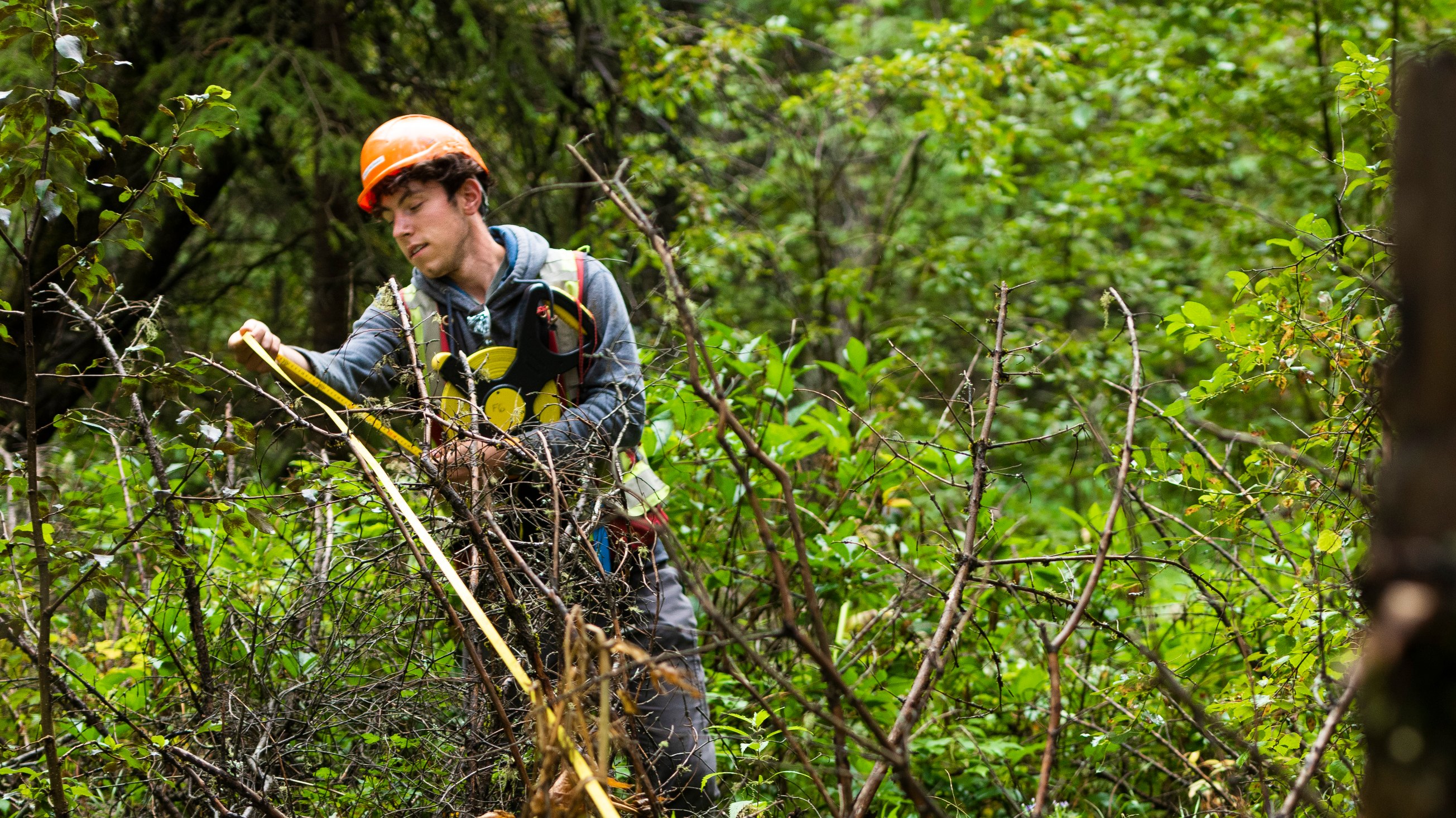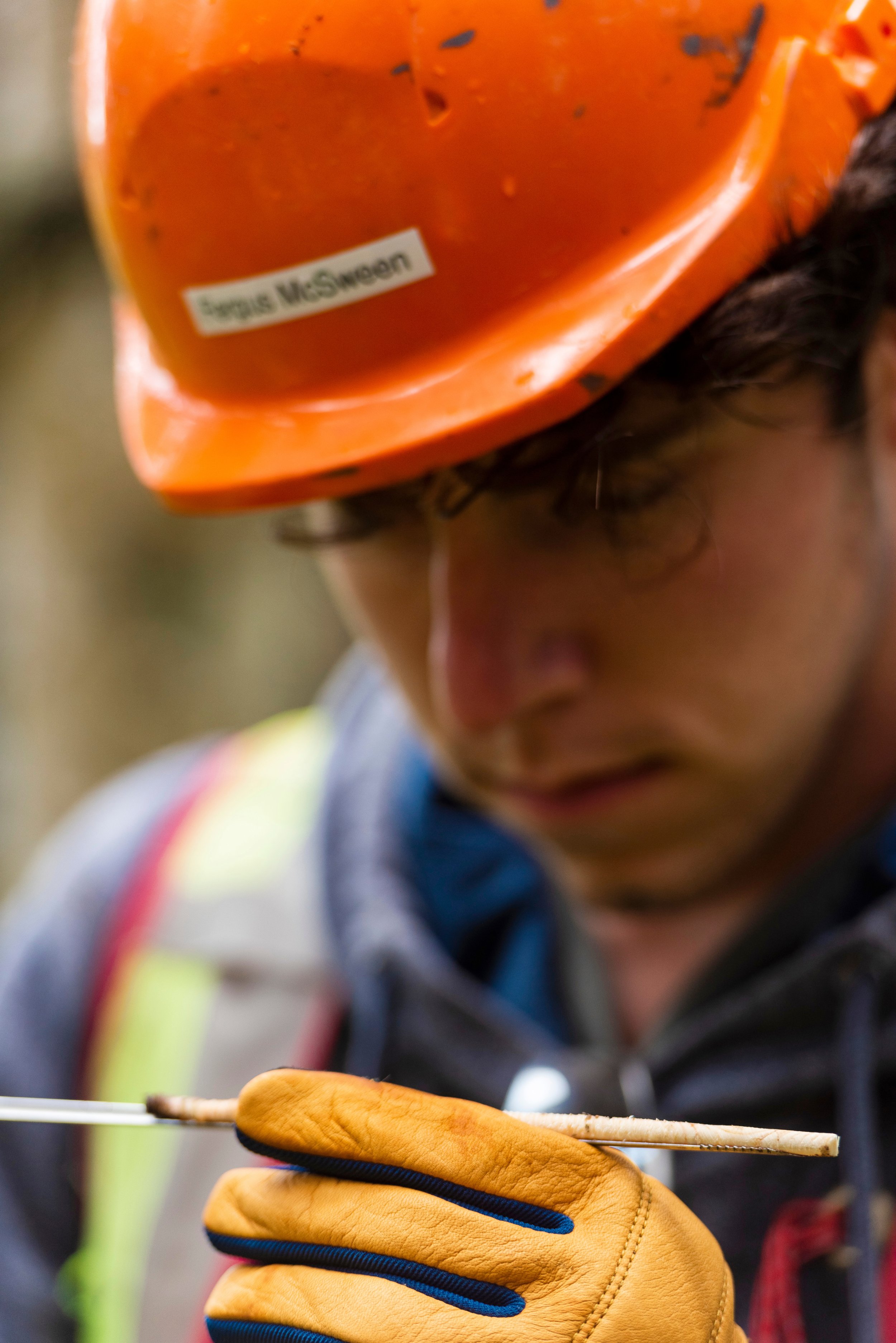Fergus McSween loves the outdoors. Growing up in Calgary, he spent much of his youth outside the city, roaming Alberta’s forests as a scout, on school outdoor education trips or camping with friends and family.
“Nature is so peaceful and tranquil. It’s a place where I can be myself, turn my brain off and just enjoy the outdoors. I feel I belong out there.”
And he has found just the right field to fit that feeling. He graduates June 15 with a bachelor of science in forestry, as well as a job and a zeal to contribute to his chosen field.
It wasn’t a sure path. As he got ready to start university, McSween didn’t really know what career might connect with his interests — until he checked out different job options.
“One of the jobs was park ranger, which sounded like fun.”
It was the idea of stewarding the forest that got him interested in the forestry program in the Faculty of Agricultural, Life & Environmental Sciences.
“It was a shot in the dark,” he admits, but his instinct paid off. The biological aspect of forestry — the plants and animals — quickly took hold of him early on and helped him figure out his focus as a forester.
“I want to help preserve nature for the enjoyment of future generations — one of the main tenets of a forester — and that’s become the focal point of how I want to develop my career: ensuring our forest practices do the utmost to minimize all environmental impacts.”
McSween now works as a full-time planning forester in the logging industry, using his knowledge to help guide the use of best practices. His job is to plan how an area of the forest will be logged, with boots-on-the-ground work to mark off roads, creeks and boundaries, follow the terrain’s natural patterns and identify special areas.
“I find it fulfilling when I can make sure a bird’s nest is protected,” McSween says. “I may not be a park ranger but I still do the same thing, walking the forest, hanging out with nature and helping protect it the best way I can.”
Ultimately, McSween hopes to pursue a master’s degree focused on approaches to management that will help guide the forestry industry — and potentially other land-use projects such as mining or landfill operations — through challenges such as the effects of climate change.
On top of loving his work, McSween says he’s grateful to have found a job so quickly.
After he worked two summer jobs in silviculture, he applied for a job on the planning side of the forestry industry in the fall of 2020 and started working in May of 2021 while finishing up his degree.
“Having this job secured so early takes a tremendous amount of stress off while working through school, knowing you’ll be financially secure for another year.”
Once he started work, he discovered there was a demand for forestry professionals. “Forestry is an industry that is inherently stable, so it’s one of those programs where no one ever really struggles to find a job when they graduate.”
His degree gives him and his classmates the tools to go in several directions within forestry, McSween says.
“There was a real focus on the academic side and we learned a lot about biology, ecology and the principles behind managing a forest. That ability to understand the ecosystem and the principles that guide our practice is really beneficial to how a mill operates, for instance.
“With the broad learning we had, we can go into research, working in scientific parts of the industry such as tree improvement, which is a huge aspect of forestry.”
He gained a deep respect for scholarly research, crediting a regular Friday class with ALES professor Nadir Erbilgin, who presented a published scientific study for student discussion each week.
“It helped me enjoy reading research papers and getting into the nitty-gritty of them, the critical analysis of research. Through that I found my own desire to potentially do research in the future.”
His education has also given him a deeper understanding of the natural world.
“When I look at the birds, I can answer the small questions about why they act the way they do, or why they are where they are. I find understanding the subtle aspects of nature one of the most fulfilling parts of going through the forestry program.”
And thanks to one of his first experiences on campus, a trip with the ALES Forestry Field School, McSween has made treasured friendships.
“When you stuff a bunch of 18- and 19-year-olds into three vans to travel around Alberta for a week, camping together, there’s no way we couldn’t have become friends. A lot of us didn’t know what forestry was, and we pondered the learning experience and seeing different aspects of forestry. Those are such bonding experiences.
“I wouldn’t have traded these last four years at the U of A for the world.”
McSween was supported in his studies with the Rutherford Scholarship, the Garry Leithead Memorial Scholarship in Forestry, the Forest Industry Suppliers and Logging Association Award, the Forestry Memorial Scholarship and the Jason Lang Scholarship.

